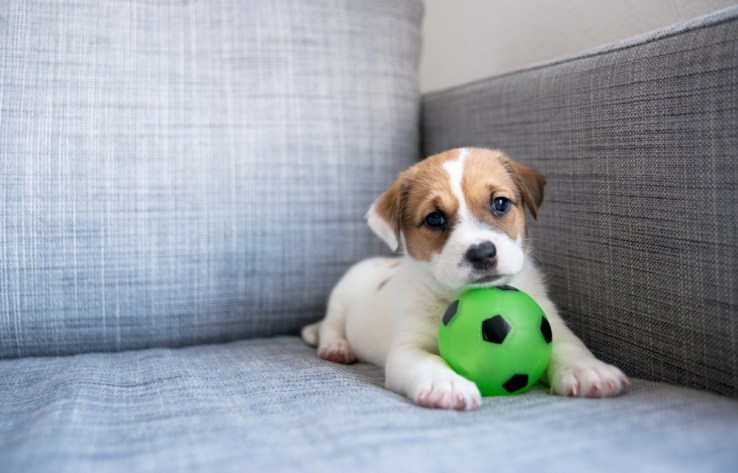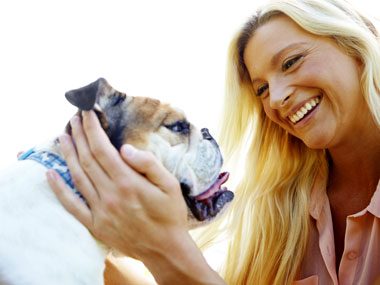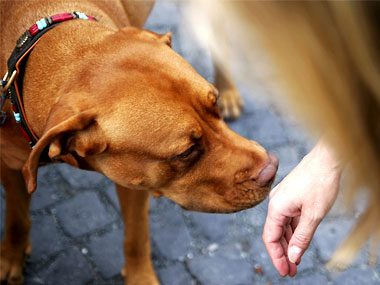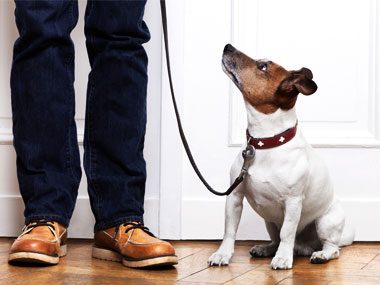The "smell" center of a dog's brain is 40 times larger than yours.
 |
| iStock/Thinkstock |
Dogs can smell thousands of times better than humans. Their noses have millions more scent receptors—for example, a human nose averages 5 million while a Dachshund's has 125 million—making them useful in sniffing out drugs, dead bodies, bed bugs, explosives, and more.
No two dog noses are the same.
No two dog noses are the same.
 |
| Courtesy of Gabriela Landazuri |
A dog's nose is the equivalent of a human fingerprint, with each having a unique pattern of ridges and creases.
Dogs dream like people.
 |
| Courtesy of Adrian Varga |
If you've ever noticed your pooch twitching in her sleep, this probably means she's dreaming. Researchers found that dogs have similar sleep patterns and brain activity as humans, and that small breeds tend to dream more than large ones. Psychology Today suggests they're probably imagining familiar activities like playing outside or chasing their tail.
Dogs are as smart as a two-year-old baby.
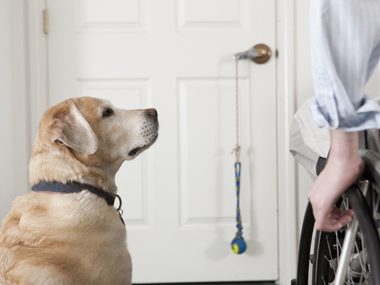 |
| Hunstock/Thinkstock |
According to canine researcher and author Stanley Coren, your toddler and pup are about on par when it comes to brains. He also explained that man's best friend can count, understand over 150 words, and even trick people or other dogs to get treats. Intelligence varies based on breed—Border collies are the smartest.
Dogs only mate twice a year.
 |
| iStock/Thinkstock |
Unspayed females only go into heat twice a year, so dog breeders need to plan carefully.
Tail wagging has its own language.
 |
| iStock/Thinkstock |
If your dog excitedly wags their tail, it means they're happy to see you, right? Not necessarily. According to Discovery.com, dogs wag their tails to the right when they're happy and to the left when they're frightened. Wagging low means they're insecure; and rapid tail wagging accompanied by tense muscles or dilated pupils can signal aggression.
Puppies are born blind and deaf.
 |
| iStock/Thinkstock |
Newborn dogs are still developing, according to Psychology Today, so their ear canals and eyes are still closed. Most puppies open their eyes and respond to noises after about two weeks.
Dogs have a "sixth sense."
 |
| iStock/Thinkstock |
In a 2010 poll, 67 percent of pet owners reported their pets acting strangely right before a storm, and 43 percent said their pets behaved oddly right before something bad happened. The top clues? Whining, erratic behavior, or trying to hide in a safe place. There are even reports that dogs can sense illnesses, like cancer.
Dogs only have sweat glands in their paws.
 |
| Zoonar/Thinkstock |
Even though they sweat out through the pads of their paws, their main form of cooling down is panting.
Your dog's feet might smell like corn.
 |
| iStock/Thinkstock |
Some pet owners might notice the faint scent of corn chips or popcorn lingering around their dog. This is called "frito feet," and it happens when sweat and bacteria builds up in the paws.
"Dog breath" is actually unhealthy.
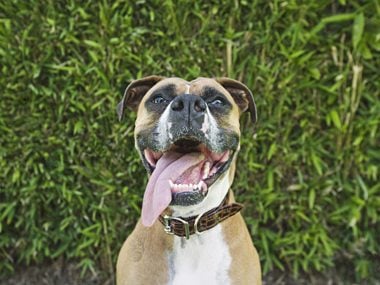 |
| Stockbyte/Thinkstock |
You might expect your dog's mouth to smell like, well, dog. But persistent bad breath can actually be a sign of dental disease or other health problems. If you don't already, have your dog's teeth examined by a veterinarian every year.
It's not abnormal for dogs to eat feces.
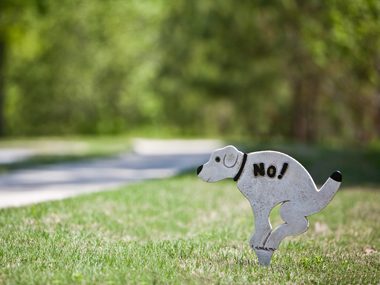 |
| iStock/Thinkstock |
It's no secret: dogs often eat their own feces (and other fecal matter). But though it might seem gross, the ASPCA says it's perfectly normal, stemming from their pre-domestication days thousands of years ago. More common in puppies, older dogs usually grow out of it, although some do it into adulthood.
A dog's unique smell is secreted in its glands.
 |
| iStock/Thinkstock |
And yes, those scent glands are located in their backsides. Dogs are notorious for sniffing one another there, but it's how they identify others and also what they use to mark their territory.
